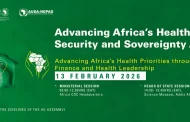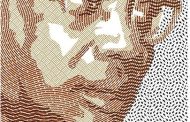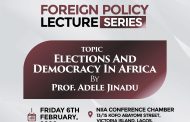The 27th World Congress of Political Science is underway in Buenos Aires, Brazil, with Africa set to dominate the panel on The Politics of New Resource Discoveries in the “Post-resource Curse” Era. Nearly 3000 delegates are attending one of the foremost international gathering of political scientists domiciled in academia, research and consulting. For four days, the two-yearly affair featuring participants from about 80 countries will pore over contending theoretical and empirical works in the field which, like all other disciplines right now, is suffering from surfeit of counter-hegemonic fissures. The overarching theme for this congress is “Politics in the Age of Transboundary Crises: Vulnerability and Resilience”. The concept of resilience alone has been the site of a big battle recently between defenders and attackers of perceived attempt at framing and studying it from the prism of neoliberalism. Intervention shudders to think about the methodological and other disagreements that will come up in unpacking the different sub-divisions within the theme. Interestingly, conceptual cleansing is the hallmark of academia.
The panel on “The Politics of New Resource Discoveries in the ‘Post-resource curse’ Era” is featuring four presentations viz “Resource Nationalism for Development or Patronage? Evaluating Tanzania and Uganda’s Strategies for Managing Relationship With International Corporations”; Seeing Like Taxpayers: Tax Morale in Postrevolutionary Sudan”; The Geopolitics of Mozambique’s Natural Gas” and New Resource Discoveries and Old Patterns of Accumulation, Politics and Development in Nigeria” which will be coming from Prof Pam Dung Sha of the Department of Political Science at the University of Jos in Nigeria.
Prof Dung Sha’s paper frames the puzzle in terms of how we might understand the way in which resource extraction shapes the pattern of politics, state economic behaviour, gender relations and models of development? He enquires into what steps should be taken to end resource curse and deliver welfare to citizens, enthrone gender and inclusive development patterns and improve the nation’s status globally?
Starting with the recognition that Nigeria is a resource endowed country, from the Niger Delta region to recent discoveries of oil in the Northern part of the country, the conflicts embedded in State – indigenous peoples, including illegal harnessing of oil, gas and solid minerals by state and transnational elites and companies, his presentation relies on existing statistics to defend the argument that resource discoveries haven’t changed the pattern of resource accumulation, use and development in the country. He sees new collective action politics which demands a new set of politics which will implement reforms and build resource-based economies on the ethos of good governance and democracy as the way out.




























